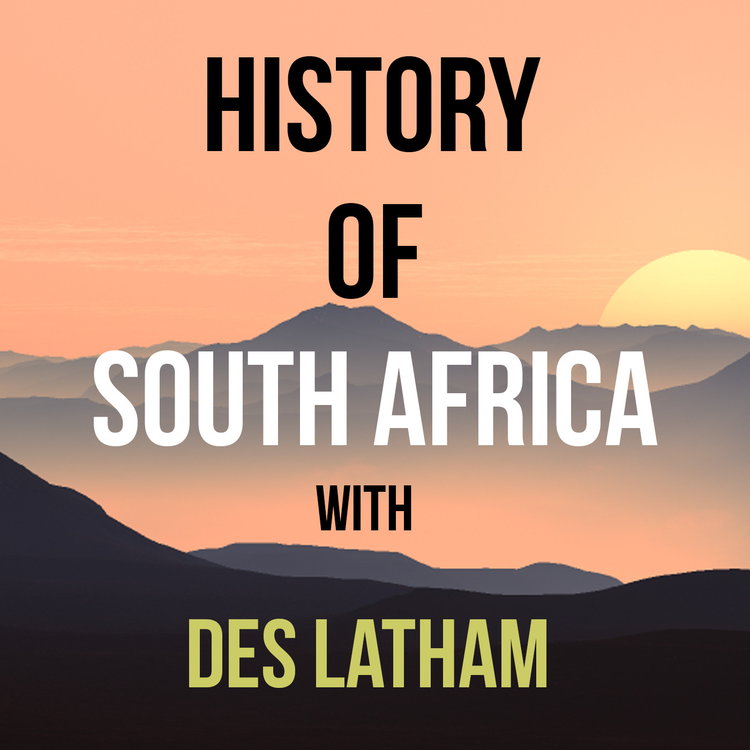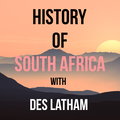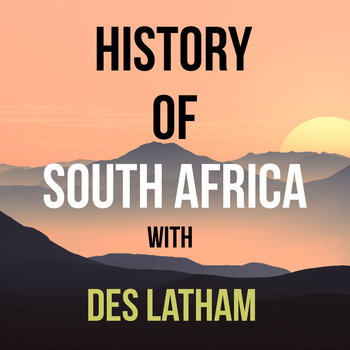
Episode 187 - The Albany Rangers and Mantsopa the soothsayer emerges amongst the BaSotho
Loading player...
This is episode 187 - it’s 1851. Time to take stock of what’s going on across southern Africa which as you know was in the throes of the 8th Frontier War. A significant war. After that we’ll return to Thomas Stubbs who had turned himself into a useful night raider and was about to show the British how to fight in the Albany thickets.
To the north, in the mountains of the BaSotho people, King Moshoeshoe the first was not idle in early 1851and his patience with his own kith and kin as well as with the Boers and the British had worn out.
When word of Mlanjeni the prophet reached the BaSotho - and how his new message of salvation through a mixture of Christianity and amaXhosa religion had resonated with so many, Moshoeshoe kept a clear head.
He had allowed the French missionaries and Casalis in particular to operate within his kingdom and trusted the man in black, but now the exuberant revival of traditional customs and rituals and warfare began to sweep through LeSotho — a millenarian moment.
Mlanjeni’s reputation caused a relapse among the BaSotho converts, led by a local diviner called Mantsopa who began to build a formiddable reputation as a soothsayer. She could predict victories in war it was said, and in 1850 and 1851 the revivalist movement grew more powerful. Moshoeshoe was always cautious when to came to religion, as you’ll hear when we return over the coming episodes to the mountain kingdom.
Mlanjeni’s reputation caused a relapse among the BaSotho converts, led by a local diviner called Mantsopa who began to build a formiddable reputation as a soothsayer. She could predict victories in war it was said, and in 1850 and 1851 the revivalist movement grew more powerful. Moshoeshoe was always cautious when to came to religion, as you’ll hear when we return over the coming episodes to the mountain kingdom.
Moshoeshoe took note of this reaction and how the racial and political message was deeply felt by his people. And yet he continued to attend French missionary Casalis’ church services out of good faith, and ensured that the missionaries were protected.
He also reinforced to all that he was a man of his word.
This is the really incredible thing, whereas most others around him were quite ready to go on some terminal quest to kill all the invaders, he was first and foremost, a realist. This all began to come to a head as the 8th Frontier war exploded when the British officials in the Orange River Sovereignty demanded restitution for cattle raiding.
And now it’s time to return to the story of Thomas Stubbs. His part in this epic drama is seemingly insignificant, and yet it is more important at second glance. What, would you say, could really be important about a small-scale import export trading rebel who was a part-time saddle artisan from Albany ?
A man who’s father Henry made money trading illegally with the amaXhosa?
As I mentioned in passing last episode, in some ways, Stubbs set off a series of what became known as special force tactics in the British Army. He wasn’t alone in the period, the British Army was coming up regularly against unconventional soldiers experts in their own bush and veld. In India, Canada, Australia, the middle East.
But what was really important about Thomas Stubbs was how he approached tactical issues in the bush. The entire British military experiment in the mid-19th Century was all about seeing what was going on— marching around — bugles, classic red tunics, polished buttons flashing in the midday sun where they’d strut about. You know the saying, no-one goes out in the midday sun except mad dogs and Englishmen.
To the north, in the mountains of the BaSotho people, King Moshoeshoe the first was not idle in early 1851and his patience with his own kith and kin as well as with the Boers and the British had worn out.
When word of Mlanjeni the prophet reached the BaSotho - and how his new message of salvation through a mixture of Christianity and amaXhosa religion had resonated with so many, Moshoeshoe kept a clear head.
He had allowed the French missionaries and Casalis in particular to operate within his kingdom and trusted the man in black, but now the exuberant revival of traditional customs and rituals and warfare began to sweep through LeSotho — a millenarian moment.
Mlanjeni’s reputation caused a relapse among the BaSotho converts, led by a local diviner called Mantsopa who began to build a formiddable reputation as a soothsayer. She could predict victories in war it was said, and in 1850 and 1851 the revivalist movement grew more powerful. Moshoeshoe was always cautious when to came to religion, as you’ll hear when we return over the coming episodes to the mountain kingdom.
Mlanjeni’s reputation caused a relapse among the BaSotho converts, led by a local diviner called Mantsopa who began to build a formiddable reputation as a soothsayer. She could predict victories in war it was said, and in 1850 and 1851 the revivalist movement grew more powerful. Moshoeshoe was always cautious when to came to religion, as you’ll hear when we return over the coming episodes to the mountain kingdom.
Moshoeshoe took note of this reaction and how the racial and political message was deeply felt by his people. And yet he continued to attend French missionary Casalis’ church services out of good faith, and ensured that the missionaries were protected.
He also reinforced to all that he was a man of his word.
This is the really incredible thing, whereas most others around him were quite ready to go on some terminal quest to kill all the invaders, he was first and foremost, a realist. This all began to come to a head as the 8th Frontier war exploded when the British officials in the Orange River Sovereignty demanded restitution for cattle raiding.
And now it’s time to return to the story of Thomas Stubbs. His part in this epic drama is seemingly insignificant, and yet it is more important at second glance. What, would you say, could really be important about a small-scale import export trading rebel who was a part-time saddle artisan from Albany ?
A man who’s father Henry made money trading illegally with the amaXhosa?
As I mentioned in passing last episode, in some ways, Stubbs set off a series of what became known as special force tactics in the British Army. He wasn’t alone in the period, the British Army was coming up regularly against unconventional soldiers experts in their own bush and veld. In India, Canada, Australia, the middle East.
But what was really important about Thomas Stubbs was how he approached tactical issues in the bush. The entire British military experiment in the mid-19th Century was all about seeing what was going on— marching around — bugles, classic red tunics, polished buttons flashing in the midday sun where they’d strut about. You know the saying, no-one goes out in the midday sun except mad dogs and Englishmen.

